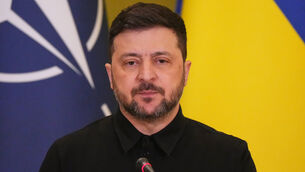Libby pleads not guilty in CIA leak inquiry
US Vice President Dick Cheney’s former chief of staff today pleaded not guilty in the CIA leak scandal, marking the start of what could be a long road to a trial in which Cheney and other top Bush administration officials could be summoned to testify.
Once the charges were read and US District Judge Reggie Walton asked for his response, Libby said: “With respect, your honour, I plead not guilty.”














